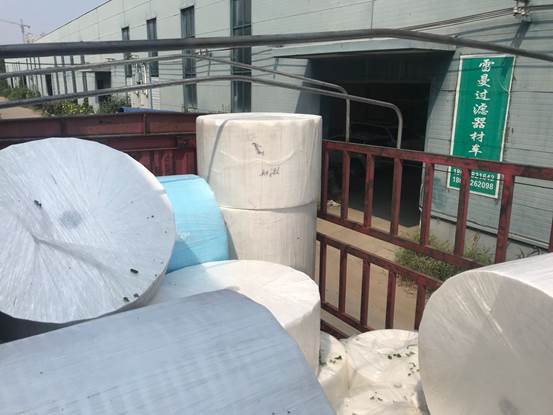Aug . 13, 2024 22:18 Back to list
Achieving CE Certification for Line Air Filters to Ensure Quality and Compliance Standards
CE Certification in Line Air Filters Importance and Implications
In today's industrial landscape, ensuring product safety and environmental responsibility is paramount. One of the key standards that manufacturers must consider is the CE marking, particularly in the context of line air filters. CE certification not only signifies compliance with European health, safety, and environmental protection standards but also enhances the credibility of products across the global marketplace.
Understanding CE Certification
CE marking is a mandatory conformity mark for products sold within the European Economic Area (EEA). The letters “CE” stand for Conformité Européenne, which translates to European Conformity. This mark indicates that a product meets the essential requirements of relevant European directives and regulations. For line air filters, the CE marking signifies that these products are designed to ensure efficient air filtration while adhering to safety and environmental standards.
The Importance of Air Filters
Air pollution is a persistent issue impacting both health and the environment. Line air filters play a crucial role in controlling airborne contaminants in various settings, including industrial facilities, commercial buildings, and residential areas. They are essential for improving indoor air quality (IAQ) and protecting workers and occupants from harmful pollutants. Therefore, the certification of these filters under the CE mark is vital. It assures users that the filters meet rigorous performance criteria and contribute to safer and healthier environments.
The CE Certification Process for Line Air Filters
To attain CE certification for line air filters, manufacturers must undergo a series of evaluations to ensure compliance with applicable EU standards. These typically involve
1. Product Testing This involves rigorous assessments of the filter's efficiency, durability, and safety. Tests are conducted to measure the filter's ability to remove particles of various sizes, including dust, pollen, and, in some cases, bacteria and viruses.
2. Technical Documentation Manufacturers must compile comprehensive documentation that details the design, manufacturing processes, and testing of the air filters. This documentation serves as proof of compliance with EU directives.
ce certification in line air filter

3. Quality Management Systems Manufacturers must implement a quality management system that aligns with ISO standards, ensuring consistent performance and reliability of the products.
Benefits of CE Certification
1. Market Access CE certification is essential for manufacturers wishing to market their products within the EEA. It facilitates trade by eliminating barriers while enhancing the marketability of their products.
2. Consumer Trust The CE mark is recognized worldwide as a symbol of quality assurance. It boosts consumer confidence, as customers are more likely to choose products that meet stringent safety and environmental standards.
3. Competitive Edge In an increasingly competitive marketplace, having CE certification can distinguish a manufacturer from competitors who lack such certification. It is a testament to a manufacturer’s commitment to quality and safety.
4. Legal Compliance CE certification helps manufacturers avoid legal repercussions associated with non-compliance. It provides a framework for ensuring that products meet essential safety and environmental requirements.
Conclusion
In conclusion, CE certification for line air filters is not just a legal requirement but a crucial element in enhancing product safety and reliability. As concerns about air quality and pollution continue to rise, ensuring that air filtration products adhere to strict standards is essential for public health and environmental sustainability. By obtaining CE certification, manufacturers can demonstrate their dedication to quality, safety, and environmental responsibility, benefiting both their business and the broader community.
-
PLAB-6 A B Two Compounds Filter End Cap Gluing Machine - Hebei Filter Man
NewsAug.17,2025
-
PLAB-6 A B Two Compounds Filter End Cap Gluing Machine-Hebei Filter Man|Precision Gluing, Efficient Manufacturing
NewsAug.17,2025
-
PLAB-6 A B Two Compounds Filter Gluing Machine - Hebei Filter Man
NewsAug.17,2025
-
PLAB-6 A B Two Compounds Filter End Cap Gluing Machine-Hebei Filter Man Automotive Parts Trading Co., Ltd|Precision Gluing&Industrial Automation
NewsAug.17,2025
-
Active Carbon Air Filter for Air Purifier - Odor & VOC Removal
NewsAug.17,2025
-
PLAB-6 A B Two Compounds Filter Gluing Machine-Hebei Filter Man|Precision Automation,Customizable Settings
NewsAug.16,2025
